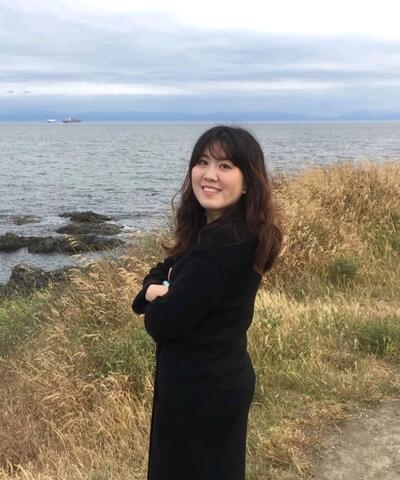
Editorial Assistant Jamie Kitts' Interview with Jaeyun Yoo whose poem "have you seen my father" won our 2023 Ralph Gustafson Poetry Prize and was published in Issue 299 (Spring 2024)
Jamie Kitts: Your poem "have you seen my father" reads so personally. Have any of your family read or reacted to it?
Jaeyun Yoo: Some of my family members have been very supportive of my work and understand this poem as an attempt to reconstruct painful experiences into something meaningful and beautiful. I also respect that there may be different perspectives on shared experiences. One of the most helpful lessons in my growth as a writer has been to realize that each person, including myself, has their own narrative.
JK: Every time I read this poem I'm struck by the chain-smoking between the father and grandfather. Is there something they understand about each other through their shared practice that the speaker cannot account for?
JY: In an environment where difficult emotions are often left unsaid and unprocessed, one way of expressing love and grief can be through behaviours such as substance use. The chain-smoking between the father and grandfather conveys the intergenerational transmission of these coping patterns. “Chain” implies a strong bond, but also something that can be binding and ominous.
JK: I'm so curious about this word, "unseen," as it's used in the second stanza. What does it mean to unsee someone?
JY: One day, I was at a small restaurant and I saw people walk past the kitchen on their way to the washroom. The curtain that had typically divided the back room from the customers was absent this day, leaving visible the dishwasher and line cook, who were both people of colour. I was surprised to see how many people automatically looked but then quickly averted their gaze, as if it was uncomfortable to acknowledge their labour. It made me think about my own family and the many other racialized families who work tirelessly behind-the-scenes to make ends meet. I wanted readers to see these hardships by naming the unseen.
JK: Fiddlehead 299 is an issue featuring multiple stories and poems about family and parental figures. Do you think this reflects emerging cultural conversations about parents and families, or do you see your poem in a different context?
JY: I am honoured to be in an issue with multiple viewpoints about family and parental figures! I appreciate the increasing exploration about how culture intersects with understanding relationships. I definitely strive to be part of that conversation through my writing.
In my poem, sociocultural context such as economic status, job insecurity, and immigration have a significant presence that is deeply intertwined with the narrative arc. Keeping this broad perspective in mind has helped me make sense of my family’s lived experiences and improve as a poet.
JK: You're a member of the group Harbour Centre 5, who have a collaborative chapbook out, Brine. Does publishing work as part of a collective feel different for you than releasing solo work? Did any of the rest of your group contribute feedback during the writing of “have you seen my father”?
JY: Thanks for asking this question! Harbour Centre 5 is a collective of emerging poets who met through Simon Fraser University’s Weekend Poetry Course taught by Fiona Lam and Evelyn Lau. A number of us wanted to start a poetry group to continue workshopping even after the course was over. It has been over 5 years of this monthly practice and I am truly indebted to them for my development as a poet. In fact, I submitted to the 2023 Ralph Gustafson Poetry Contest because I was inspired by Christina Shah, who is a member of Harbour Centre 5. She was a finalist for the 2021 Ralph Gustafson Poetry Contest and she encouraged me to try submitting to the contest too. I workshopped “have you seen my father” with them twice— a first draft and a more polished version. I also occasionally workshop material with my talented classmates who I met through The Writer’s Studio (taught by Kayla Czaga) and they have been a major influence on my writing as well.
Rebecca Holand, another member of Harbour Centre 5, is not only a great poet but also an accomplished artist. She was instrumental in putting together our collaborative chapbook, Brine. It required teamwork to figure out how to weave writing from five unique poets into a cohesive theme, which is different from creating a strong individual voice in a solo manuscript.
As you can see, fostering connection and community has been very important for my poetry. I have been fortunate to meet wonderful instructors and classmates who have become mentors and friends. I am eager to continue meeting other fellow writers who have a shared love language of line breaks and em-dashes!
Jaeyun Yoo is a Korean-Canadian poet, psychiatrist, and graduate of Simon Fraser University’s The Writer’s Studio. A Best of the Net nominee, her poems have appeared in Room, Canthius, CV2, and elsewhere. She published a collaborative chapbook, Brine, with Harbour Centre 5, a collective of emerging poets.










